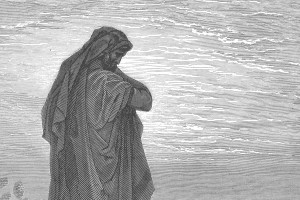The Book of Psalms is a single volume commentary published in Eerdmans New International Commentary on the Old Testament (NICOT) series. It is the work of three authors, Nancy deClaisse-Walford, Rolf A. Jacobson, and Beth LaNeel Tanner, each of whom authored individual chapters on individual psalms. All contributed to the introduction.
The Introduction provides a brief discussion of the authorship, superscription, some historical background, and the canonical shape of the Psalter. The author’s adopt stance that “for practical purposes, all the psalms are anonymous.” (pg. 10) Nevertheless, the authors often consider why a psalm would be attributed to a given author (such and David or Moses) even if they do not consider the superscription to be historically accurate. A quirky effect this has on the commentary is that reference may be made to a female psalmist, even if the superscription attributes it a male. (cf. 109-119) This approach has the effect of personalizing their commentary in a refreshing way. Even so, when the personal pronouns switch gender within the description of given psalm this can have a jarring effect on the reader and detracts from the historical character of the work.
The authors briefly recount a rough outline of the historical-critical research on the Psalms, including a discussion of form criticism. As the primary emphasis is on the canonical shape of the psalter as a whole this discussion mostly informs the authors’ classification of different psalms (i.e. as a psalm of lament or an instructional psalm). The authors’ prefer to read the Psalter as a deliberate construction, both in terms of order and content. Therefore the five divisions of the Psalter in the Masoretic Text (MT) are marked, and an introduction is provided for each.
Each Psalm is then presented in a single chapter, with a single author. Each author is well aware of the comment of the others, and effort is made to tie together pertinent themes and shared material. These chapters vary in length based on the length of the Psalm, though most are between 6-10 pages. Most chapters consist of an introduction to the psalm, a translation by the author, and an outlined commentary. The usual format for the commentary is to consider verses in groups based on thematic or stylistic criteria. The authors often make reference to the meaning and usage of the original Hebrew, and all Hebrew terms are transliterated.
Jacobson’s contributions uniquely include a final section titled “Reflections” in which he considers the theological and ecclesial value of the discussed psalm. The other authors contribute the same kind of material though it is not always as extensive or explicitly marked. Each author makes an effort has been made to include the pertinent reception history of different Christian traditions. The comment of Martin Luther and Roman Catholic liturgical practice both feature heavily throughout.
The NICOT commentary is neither a purely academic treatment of the Psalms nor is it merely a devotional exercise. It inhabits both to a limited degree. For that reason, if a reader approaches it expecting one or the other she may be disappointed. This mixture of approaches could therefore be considered a weakness. However, if one approaches this commentary knowing what to expect it will provide a very valuable, though limited, resource for both approaches. I would suspect that the reader who will find this the most useful is a preaching scholar who needs a resource that is concerned with devotional value as well as academic insights.
The Bottom Line: The Book of Psalms will provide a valuable resource for those looking for a brief commentary on individual psalms which takes into account scholarly concerns with a devotional/homiletical emphasis. It is recommended therefore as a resource for the preaching pastor.
Review by Raymond Morehouse
University of St Andrews





Leave a Reply
Your email is safe with us.